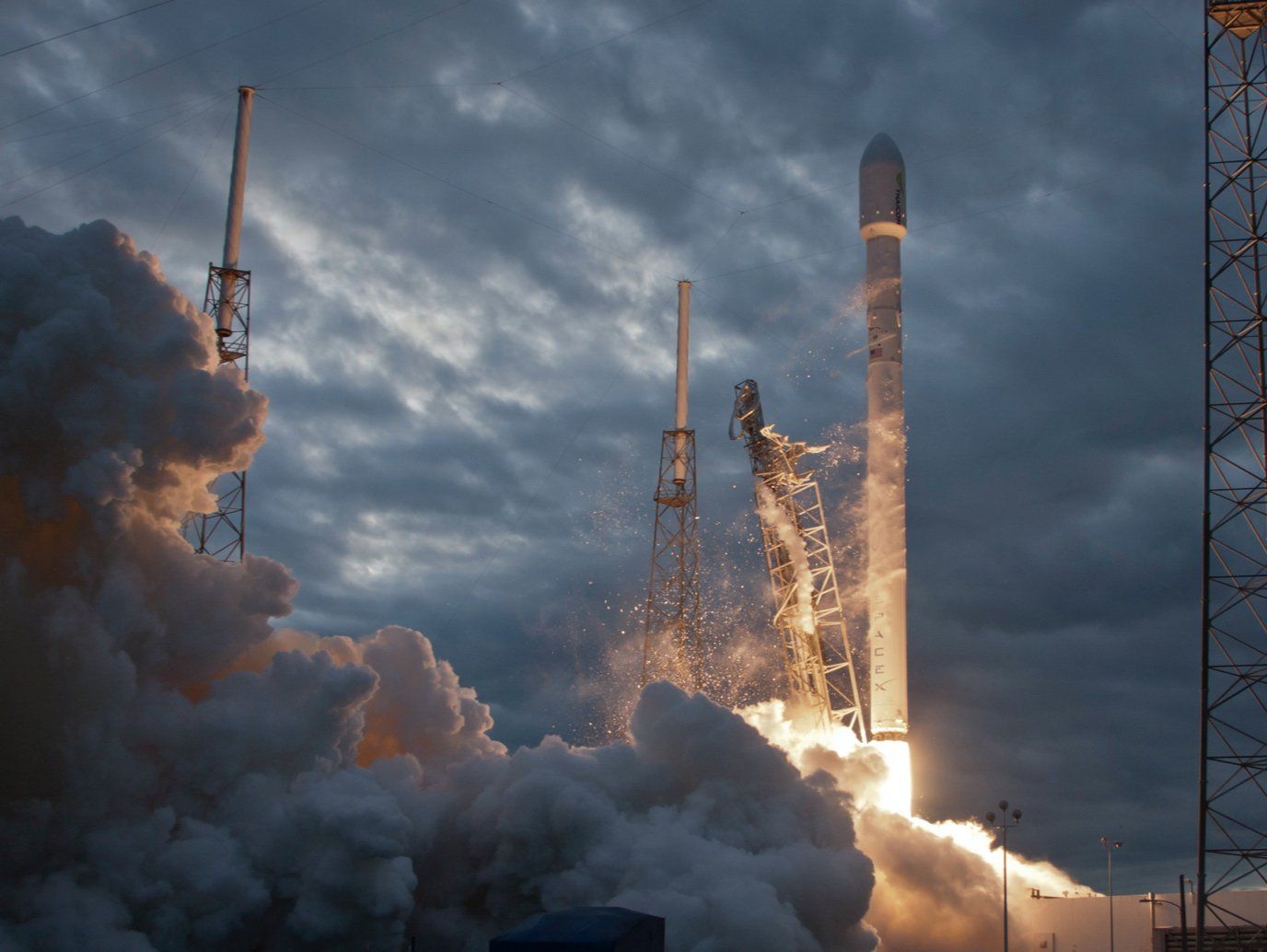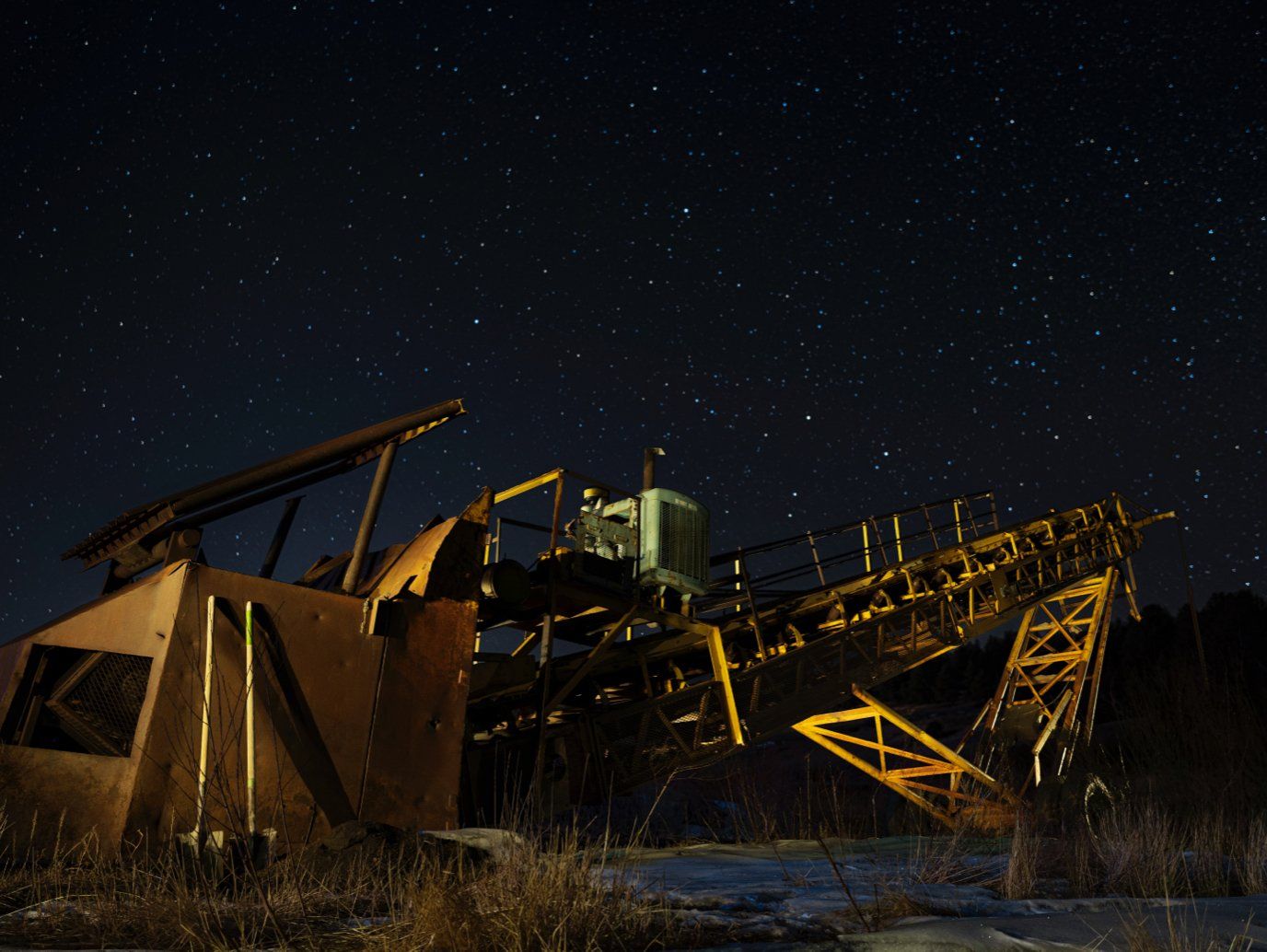Our future in space
1 - 5 August 2022
As the new space race unfolds, events on Earth could compromise fragile neutrality

ISS has been an example of how nations can cooperate in space (image: Pixabay/NASA)
As relations between the major economies of the world continue to deteriorate, we are witnessing a restructuring of global influence. Events in Ukraine have led to a power crisis in Europe and throughout the world, whilst industries are still suffering with supply chain issues related to sourcing of precious resources and semiconductor technology.
More than ever, governments are looking to space to address these pressing issues. Earth orbit is becoming more crowed, with nations prioritising the need to establish global communications, military navigation or climate observation. Plans are also afoot, most notably by China, to build solar power stations in LEO. There’s also an increasing awareness about the value of lunar and space mining, with precious resources need to build our technology in shorter supply.
As more nations begin to put a higher value on space, how will it be possible for humankind to maintain its delicate policy of neutrality in space? Moreover, is it inevitable that the commercial sector will become more politicised, or even a target in military conflict?
Race for Earth Orbit
LEO and Earth Orbit have become the most prized resource in space at the moment. There has been a dramatic increase in the number of objects orbiting Earth in recent years, and that number is set to drastically increase.
Adding to the long list of those looking to establish themselves in Earth orbit, the European Union is now looking to build its own satellite constellation, reaching out to their member states asking for suggestions on how to finance and implement their satellite system. Noticing the increased demand to launch payloads into LEO, Welsh company B2Space have detailed their plans to launch satellites in high altitude, being carried by balloon. The balloon would take smaller satellites to around 21 miles in to thinner atmosphere, and launch from there, drastically reducing fuel needs. The technology, slated to launch in 2024, would be great news for sustainability in the space sector.
Together with megaconstellations such as Starlink and Amazon’s Kuiper system, LEO is becoming ever more hazardous. A report from Flinder’s University in Australia this week highlighted the fragility of LEO, and highlights the need for regulation to quickly catch-up with the technology. In the same week, a report was released by American think tank the Atlantic Council, also concerning the danger of space traffic, and pushing the US to establish global rules on traffic management.
Interestingly, the Atlantic Council report was funded by Maxar Technologies, a space technology company headquartered in Westminster, Colorado. This surely indicates the desire from industry to introduce norms and regulations in LEO.
As well as using Earth orbit for satellite technology, a permanent human presence is also seen as vital by leading space nations. With China well on the way to completing their new Tianwen station this year, NASA have rejected concerns over US commercial station development plans. There were previously worries about timing gaps between the retirement of the ISS and completion of new stations being developed by private companies such as Blue Origin and Axiom.

SpaceX launched Korean pathfinder to lunar orbit this week (image: Unsplash/SpaceX)
Launches all point in one direction
Fuelled by this increasing demand, rocket launches and launch capabilities are on the rise. Perhaps symbolically, on Thursday 3 launches were set for launch on the same day, from Blue Origin, SpaceX and ULA, from Texas and Florida. Perhaps an indication of the new status quo. Whilst Blue Origin’s New Shepherd is set for tourism launches, most other recent launches all point in one direction; for commercial and strategic gain, whether it be for communications, or ploughing the way forwards for lunar exploration and resource extraction.
NASA claim that they are on track with their preparations to launch Artemis-1 on the 29th August, whilst the soon to be signed US CHIPS act (focussing on developing a US microchip industry) is supposed to also include details of a new launch schedule for the SLS rocket. Part of the act supposedly will push NASA to launch annually after the first crewed launch, eventually leading to two annual launches.
Relating to lunar exploration, SpaceX will launch the Korean Lunar Pathfinder orbiter this week. Following in the footsteps of CAPSTONE, part of job of the pathfinder will be to analyse the lunar surface for such things as water, uranium, aluminium and helium-3. This clearly highlights humankind’s drive to return to the moon, with extraction of vital resources seen as key to our future.
As more nations begin to put a higher value on these resources, how easy will it be for humankind to work together to allow them to be a benefit for all, especially whilst international relations on Earth continue to deteriorate?

Mining valuable resources becoming increasingly vital for nations (image: Unsplash)
With a space race in full swing, can we leave our earthly disputes out of space?
President Biden looks set to sign the US CHIPS act into law, which will boost US semiconductor production, and look to increase to supply for industry such as satellite production. The bill would also look to reduce reliance on foreign suppliers such as China and Taiwan, especially pressing considering the current state of relations. The act could be seen as addressing a two-fold problem, in that it is intended on relieving the demand for semiconductors in satellite production, which in turn will expedite the quest for space exploration, including extracting valuable asteroid and lunar resources needed to produce technology such as semiconductors.
Our reliance on technology is driving humankind’s desire to retrieve valuable minerals in space. Tira Shubart writing for Decoder, makes the valid point that “…These minerals are crucial for green technology, smartphones, medicine and aerospace due to their durable, malleable and conductive properties.” Also, an article this week form the WSJ highlights comments from John Pietro, College of the Holy Cross, claiming that it would be advantageous for the US and others to retrieve resources that are “...currently monopolized by a few nations with serious leverage over the international economy…American national security would be strengthened if the U.S. and its allies had access to rare minerals through alternative sources….”
Whilst the race for resources speeds up, what value will be put on neutrality in space, for the benefit of humankind? Throughout human history we have fought against each other, with the reason most commonly being control of resources, whether land, water, fuel or minerals. We might hope that a blossoming private sector may have the necessity and influence to establish a truly neutral realm in space, where extraction could be fairly regulated and encourage industry growth. However, as nations rush to exploit these resources, it appears that aspects of the private sector may not remain separated from the fallout from international relations.
Kaitlyn Johnson, a researcher at the Center for Strategic and International Studies, claims that SpaceX is beginning to look like a “traditional military contractor”, whilst Rocket Lab this week carried out an undisclosed launch for the US NRO. Furthermore, we have already witnessed Elon Musk’s Starlink being used in the Ukraine conflict this year, and becoming directly involved in cyber warfare with Russia. Is it inevitable that the commercial sector will become politicised, especially considering many fledgling space companies rely on government contracts and financing?
Ramin Skibba from Wired argues that “…when satellite companies (Starlink) become enmeshed in conflicts on the ground, that could have repercussions in space”, and that private companies themselves could become military targets as a result. Sadly, it appears that humankind could easily bring their earthly conflicts into space, and private sector companies along with it.
Yet amongst all the conflict, there were still some glimmering signs of optimism this week, with Roscosmos announcing that they will remain on ISS (for now), and SpaceX announcing that they will carry a Russian cosmonaut on a crew-5 mission in September. Ride-sharing and the ISS have been a beacon of cooperation, and evidence that we can look beyond our political disputes in order to further the cause of humankind and our planet. If anything, this does prove that we have what it takes in order to build cooperative future, and we must never top trying to do so.
External Links
This Week
*News articles posted here are not property of ANASDA GmbH and belong to their respected owners. Postings here are external links only.

ISS has been an example of how nations can cooperate in space (image: Pixabay/NASA)
1 - 5 August, 2022
As the new space race unfolds, events on Earth could compromise fragile neutrality
As relations between the major economies of the world continue to deteriorate, we are witnessing a restructuring of global influence. Events in Ukraine have led to a power crisis in Europe and throughout the world, whilst industries are still suffering with supply chain issues related to sourcing of precious resources and semiconductor technology.
More than ever, governments are looking to space to address these pressing issues. Earth orbit is becoming more crowed, with nations prioritising the need to establish global communications, military navigation or climate observation. Plans are also afoot, most notably by China, to build solar power stations in LEO. There’s also an increasing awareness about the value of lunar and space mining, with precious resources need to build our technology in shorter supply.
As more nations begin to put a higher value on space, how will it be possible for humankind to maintain its delicate policy of neutrality in space? Moreover, is it inevitable that the commercial sector will become more politicised, or even a target in military conflict?
Race for Earth Orbit
LEO and Earth Orbit have become the most prized resource in space at the moment. There has been a dramatic increase in the number of objects orbiting Earth in recent years, and that number is set to drastically increase.
Adding to the long list of those looking to establish themselves in Earth orbit, the European Union is now looking to build its own satellite constellation, reaching out to their member states asking for suggestions on how to finance and implement their satellite system. Noticing the increased demand to launch payloads into LEO, Welsh company B2Space have detailed their plans to launch satellites in high altitude, being carried by balloon. The balloon would take smaller satellites to around 21 miles in to thinner atmosphere, and launch from there, drastically reducing fuel needs. The technology, slated to launch in 2024, would be great news for sustainability in the space sector.
Together with megaconstellations such as Starlink and Amazon’s Kuiper system, LEO is becoming ever more hazardous. A report from Flinder’s University in Australia this week highlighted the fragility of LEO, and highlights the need for regulation to quickly catch-up with the technology. In the same week, a report was released by American think tank the Atlantic Council, also concerning the danger of space traffic, and pushing the US to establish global rules on traffic management.
Interestingly, the Atlantic Council report was funded by Maxar Technologies, a space technology company headquartered in Westminster, Colorado. This surely indicates the desire from industry to introduce norms and regulations in LEO.
As well as using Earth orbit for satellite technology, a permanent human presence is also seen as vital by leading space nations. With China well on the way to completing their new Tianwen station this year, NASA have rejected concerns over US commercial station development plans. There were previously worries about timing gaps between the retirement of the ISS and completion of new stations being developed by private companies such as Blue Origin and Axiom.
In the meantime, the ISS continues to remain operation with Russia announcing that they will still remain on ISS, possibly until their own station is developed. I’m sure that this story has a few more plot twists in it yet.

SpaceX launched Korean pathfinder to lunar orbit this week (image: Unsplash/SpaceX)
Launches all point in one direction
Fuelled by this increasing demand, rocket launches and launch capabilities are on the rise. Perhaps symbolically, on Thursday 3 launches were set for launch on the same day, from Blue Origin, SpaceX and ULA, from Texas and Florida. Perhaps an indication of the new status quo. Whilst Blue Origin’s New Shepherd is set for tourism launches, most other recent launches all point in one direction; for commercial and strategic gain, whether it be for communications, or ploughing the way forwards for lunar exploration and resource extraction.
NASA claim that they are on track with their preparations to launch Artemis-1 on the 29th August, whilst the soon to be signed US CHIPS act (focussing on developing a US microchip industry) is supposed to also include details of a new launch schedule for the SLS rocket. Part of the act supposedly will push NASA to launch annually after the first crewed launch, eventually leading to two annual launches.
Relating to lunar exploration, SpaceX will launch the Korean Lunar Pathfinder orbiter this week. Following in the footsteps of CAPSTONE, part of job of the pathfinder will be to analyse the lunar surface for such things as water, uranium, aluminium and helium-3. This clearly highlights humankind’s drive to return to the moon, with extraction of vital resources seen as key to our future.
As more nations begin to put a higher value on these resources, how easy will it be for humankind to work together to allow them to be a benefit for all, especially whilst international relations on Earth continue to deteriorate?

Mining valuable resources becoming increasingly vital for nations (image: Unsplash)
With a space race in full swing, can we leave our earthly disputes out of space?
President Biden looks set to sign the US CHIPS act into law, which will boost US semiconductor production, and look to increase to supply for industry such as satellite production. The bill would also look to reduce reliance on foreign suppliers such as China and Taiwan, especially pressing considering the current state of relations. The act could be seen as addressing a two-fold problem, in that it is intended on relieving the demand for semiconductors in satellite production, which in turn will expedite the quest for space exploration, including extracting valuable asteroid and lunar resources needed to produce technology such as semiconductors.
Our reliance on technology is driving humankind’s desire to retrieve valuable minerals in space. Tira Shubart writing for Decoder, makes the valid point that “…These minerals are crucial for green technology, smartphones, medicine and aerospace due to their durable, malleable and conductive properties.” Also, an article this week form the WSJ highlights comments from John Pietro, College of the Holy Cross, claiming that it would be advantageous for the US and others to retrieve resources that are “...currently monopolized by a few nations with serious leverage over the international economy…American national security would be strengthened if the U.S. and its allies had access to rare minerals through alternative sources….”
Whilst the race for resources speeds up, what value will be put on neutrality in space, for the benefit of humankind? Throughout human history we have fought against each other, with the reason most commonly being control of resources, whether land, water, fuel or minerals. We might hope that a blossoming private sector may have the necessity and influence to establish a truly neutral realm in space, where extraction could be fairly regulated and encourage industry growth. However, as nations rush to exploit these resources, it appears that aspects of the private sector may not remain separated from the fallout from international relations.
Kaitlyn Johnson, a researcher at the Center for Strategic and International Studies, claims that SpaceX is beginning to look like a “traditional military contractor”, whilst Rocket Lab this week carried out an undisclosed launch for the US NRO. Furthermore, we have already witnessed Elon Musk’s Starlink being used in the Ukraine conflict this year, and becoming directly involved in cyber warfare with Russia. Is it inevitable that the commercial sector will become politicised, especially considering many fledgling space companies rely on government contracts and financing?
Ramin Skibba from Wired argues that “…when satellite companies (Starlink) become enmeshed in conflicts on the ground, that could have repercussions in space”, and that private companies themselves could become military targets as a result. Sadly, it appears that humankind could easily bring their earthly conflicts into space, and private sector companies along with it.
Yet amongst all the conflict, there were still some glimmering signs of optimism this week, with Roscosmos announcing that they will remain on ISS (for now), and SpaceX announcing that they will carry a Russian cosmonaut on a crew-5 mission in September. Ride-sharing and the ISS have been a beacon of cooperation, and evidence that we can look beyond our political disputes in order to further the cause of humankind and our planet. If anything, this does prove that we have what it takes in order to build cooperative future, and we must never top trying to do so.
Share this article
External Links
This Week
*News articles posted here are not property of ANASDA GmbH and belong to their respected owners. Postings here are external links only.
1 - 5 August 2022
As the new space race unfolds, events on Earth could compromise fragile neutrality

ISS has been an example of how nations can cooperate in space (image: Pixabay/NASA)
As relations between the major economies of the world continue to deteriorate, we are witnessing a restructuring of global influence. Events in Ukraine have led to a power crisis in Europe and throughout the world, whilst industries are still suffering with supply chain issues related to sourcing of precious resources and semiconductor technology.
More than ever, governments are looking to space to address these pressing issues. Earth orbit is becoming more crowed, with nations prioritising the need to establish global communications, military navigation or climate observation. Plans are also afoot, most notably by China, to build solar power stations in LEO. There’s also an increasing awareness about the value of lunar and space mining, with precious resources need to build our technology in shorter supply.
As more nations begin to put a higher value on space, how will it be possible for humankind to maintain its delicate policy of neutrality in space? Moreover, is it inevitable that the commercial sector will become more politicised, or even a target in military conflict?
Race for Earth Orbit
LEO and Earth Orbit have become the most prized resource in space at the moment. There has been a dramatic increase in the number of objects orbiting Earth in recent years, and that number is set to drastically increase.
Adding to the long list of those looking to establish themselves in Earth orbit, the European Union is now looking to build its own satellite constellation, reaching out to their member states asking for suggestions on how to finance and implement their satellite system. Noticing the increased demand to launch payloads into LEO, Welsh company B2Space have detailed their plans to launch satellites in high altitude, being carried by balloon. The balloon would take smaller satellites to around 21 miles in to thinner atmosphere, and launch from there, drastically reducing fuel needs. The technology, slated to launch in 2024, would be great news for sustainability in the space sector.
Together with megaconstellations such as Starlink and Amazon’s Kuiper system, LEO is becoming ever more hazardous. A report from Flinder’s University in Australia this week highlighted the fragility of LEO, and highlights the need for regulation to quickly catch-up with the technology. In the same week, a report was released by American think tank the Atlantic Council, also concerning the danger of space traffic, and pushing the US to establish global rules on traffic management.
Interestingly, the Atlantic Council report was funded by Maxar Technologies, a space technology company headquartered in Westminster, Colorado. This surely indicates the desire from industry to introduce norms and regulations in LEO.
As well as using Earth orbit for satellite technology, a permanent human presence is also seen as vital by leading space nations. With China well on the way to completing their new Tianwen station this year, NASA have rejected concerns over US commercial station development plans. There were previously worries about timing gaps between the retirement of the ISS and completion of new stations being developed by private companies such as Blue Origin and Axiom.
In the meantime, the ISS continues to remain operation with Russia announcing that they will still remain on ISS, possibly until their own station is developed. I’m sure that this story has a few more plot twists in it yet.

SpaceX launched Korean pathfinder to lunar orbit this week (image: Unsplash/SpaceX)
Launches all point in one direction
Fuelled by this increasing demand, rocket launches and launch capabilities are on the rise. Perhaps symbolically, on Thursday 3 launches were set for launch on the same day, from Blue Origin, SpaceX and ULA, from Texas and Florida. Perhaps an indication of the new status quo. Whilst Blue Origin’s New Shepherd is set for tourism launches, most other recent launches all point in one direction; for commercial and strategic gain, whether it be for communications, or ploughing the way forwards for lunar exploration and resource extraction.
NASA claim that they are on track with their preparations to launch Artemis-1 on the 29th August, whilst the soon to be signed US CHIPS act (focussing on developing a US microchip industry) is supposed to also include details of a new launch schedule for the SLS rocket. Part of the act supposedly will push NASA to launch annually after the first crewed launch, eventually leading to two annual launches.
Relating to lunar exploration, SpaceX will launch the Korean Lunar Pathfinder orbiter this week. Following in the footsteps of CAPSTONE, part of job of the pathfinder will be to analyse the lunar surface for such things as water, uranium, aluminium and helium-3. This clearly highlights humankind’s drive to return to the moon, with extraction of vital resources seen as key to our future.
As more nations begin to put a higher value on these resources, how easy will it be for humankind to work together to allow them to be a benefit for all, especially whilst international relations on Earth continue to deteriorate?

Mining valuable resources becoming increasingly vital for nations (image: Unsplash)
With a space race in full swing, can we leave our earthly disputes out of space?
President Biden looks set to sign the US CHIPS act into law, which will boost US semiconductor production, and look to increase to supply for industry such as satellite production. The bill would also look to reduce reliance on foreign suppliers such as China and Taiwan, especially pressing considering the current state of relations.
The act could be seen as addressing a two-fold problem, in that it is intended on relieving the demand for semiconductors in satellite production, which in turn will expedite the quest for space exploration, including extracting valuable asteroid and lunar resources needed to produce technology such as semiconductors.
Our reliance on technology is driving humankind’s desire to retrieve valuable minerals in space. Tira Shubart writing for Decoder, makes the valid point that “…These minerals are crucial for green technology, smartphones, medicine and aerospace due to their durable, malleable and conductive properties.” Also, an article this week form the WSJ highlights comments from John Pietro, College of the Holy Cross, claiming that it would be advantageous for the US and others to retrieve resources that are “...currently monopolized by a few nations with serious leverage over the international economy…American national security would be strengthened if the U.S. and its allies had access to rare minerals through alternative sources….”
Whilst the race for resources speeds up, what value will be put on neutrality in space, for the benefit of humankind? Throughout human history we have fought against each other, with the reason most commonly being control of resources, whether land, water, fuel or minerals. We might hope that a blossoming private sector may have the necessity and influence to establish a truly neutral realm in space, where extraction could be fairly regulated and encourage industry growth. However, as nations rush to exploit these resources, it appears that aspects of the private sector may not remain separated from the fallout from international relations.
Kaitlyn Johnson, a researcher at the Center for Strategic and International Studies, claims that SpaceX is beginning to look like a “traditional military contractor”, whilst Rocket Lab this week carried out an undisclosed launch for the US NRO. Furthermore, we have already witnessed Elon Musk’s Starlink being used in the Ukraine conflict this year, and becoming directly involved in cyber warfare with Russia. Is it inevitable that the commercial sector will become politicised, especially considering many fledgling space companies rely on government contracts and financing?
Ramin Skibba from Wired argues that “…when satellite companies (Starlink) become enmeshed in conflicts on the ground, that could have repercussions in space”, and that private companies themselves could become military targets as a result. Sadly, it appears that humankind could easily bring their earthly conflicts into space, and private sector companies along with it.
Yet amongst all the conflict, there were still some glimmering signs of optimism this week, with Roscosmos announcing that they will remain on ISS (for now), and SpaceX announcing that they will carry a Russian cosmonaut on a crew-5 mission in September. Ride-sharing and the ISS have been a beacon of cooperation, and evidence that we can look beyond our political disputes in order to further the cause of humankind and our planet. If anything, this does prove that we have what it takes in order to build cooperative future, and we must never top trying to do so.
Share this article
External Links
This Week
*News articles posted here are not property of ANASDA GmbH and belong to their respected owners. Postings here are external links only.

















